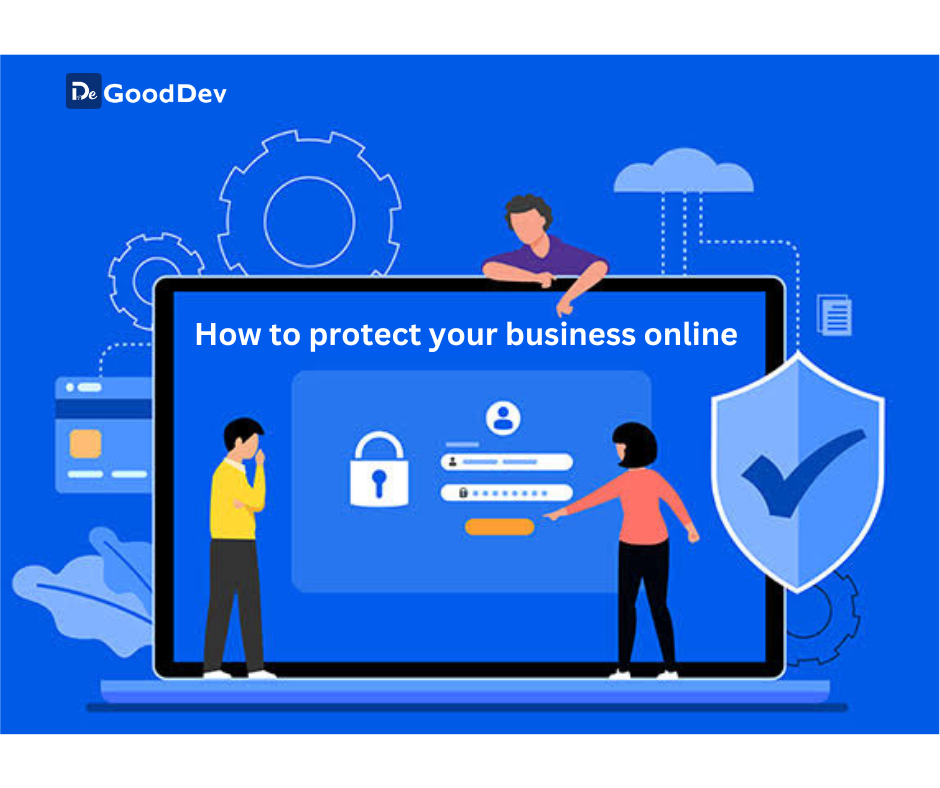How to Protect Your Business Online: Basic Cybersecurity Tips
Latest News Saturday, August 17, 2024

In today's digital age, protecting your business online is as crucial as securing your physical premises. With cyber threats on the rise, every business—regardless of size—must take proactive steps to safeguard its digital assets. Below are some basic cybersecurity tips to help you protect your business from online attacks.
1. Educate Your Employees
Your employees are the first line of defense against cyber threats. Ensure they are aware of common cyber risks, such as phishing scams, malware, and social engineering attacks. Conduct regular training sessions to educate them on identifying suspicious emails, links, and attachments. Encourage the use of strong, unique passwords and make them aware of the importance of safeguarding sensitive information.
2. Implement Strong Password Policies
Weak passwords are an open invitation to cybercriminals. Implement a strong password policy that requires the use of complex passwords, including a mix of letters, numbers, and symbols. Encourage employees to update their passwords regularly and avoid using the same password across multiple accounts. Consider using a password manager to generate and store passwords securely.
3. Use Multi-Factor Authentication (MFA)
Multi-Factor Authentication (MFA) adds an extra layer of security to your accounts by requiring two or more verification methods. Even if a hacker obtains a password, they will still need to bypass the additional authentication step. Enable MFA on all critical systems, including email accounts, financial platforms, and cloud services.
4. Keep Software and Systems Updated
Outdated software is a common entry point for cyber attackers. Regularly update all software, operating systems, and applications to ensure they have the latest security patches. Enable automatic updates where possible, and ensure your security software (such as antivirus and anti-malware) is up to date.
5. Backup Your Data Regularly
Data loss can be devastating for a business. Regularly back up your data to a secure, offsite location. In the event of a cyber attack, such as ransomware, having a backup ensures you can restore your data without paying a ransom. Automate your backups and regularly test them to ensure they can be successfully restored.
6. Secure Your Network
A secure network is essential to prevent unauthorized access. Use firewalls to block unauthorized traffic and secure your Wi-Fi networks with strong passwords and encryption. Consider segmenting your network so that critical data is stored separately from less sensitive information. Regularly monitor your network for any unusual activity.
7. Limit Access to Sensitive Information
Not all employees need access to all your business's data. Implement access controls to limit who can view and modify sensitive information. Use the principle of least privilege, granting employees only the access they need to perform their job duties. Regularly review and update access permissions.
8. Develop an Incident Response Plan
Despite your best efforts, a cyber attack may still occur. Having an incident response plan in place ensures your business can quickly and effectively respond to a breach. The plan should outline steps for containing the attack, notifying affected parties, and recovering your systems. Conduct regular drills to ensure your team knows how to execute the plan.
9. Secure Mobile Devices
With the rise of remote work, mobile devices have become a key target for cybercriminals. Ensure all mobile devices used for business purposes are encrypted and protected with strong passwords. Enable remote wipe capabilities so that data can be erased if a device is lost or stolen. Encourage employees to only download apps from trusted sources.
10. Consider Cybersecurity Insurance
Cybersecurity insurance can help mitigate the financial impact of a cyber attack. Policies typically cover expenses such as data recovery, legal fees, and customer notification costs. Evaluate your business's needs and consider purchasing a policy that offers adequate coverage for your specific risks.
Conclusion
Cybersecurity is not a one-time task but an ongoing process. By implementing these basic cybersecurity tips, you can significantly reduce the risk of cyber attacks and protect your business's sensitive information. Remember, the cost of prevention is far less than the cost of a breach, so take action today to secure your business online.
0 Comments:
Leave A Comment